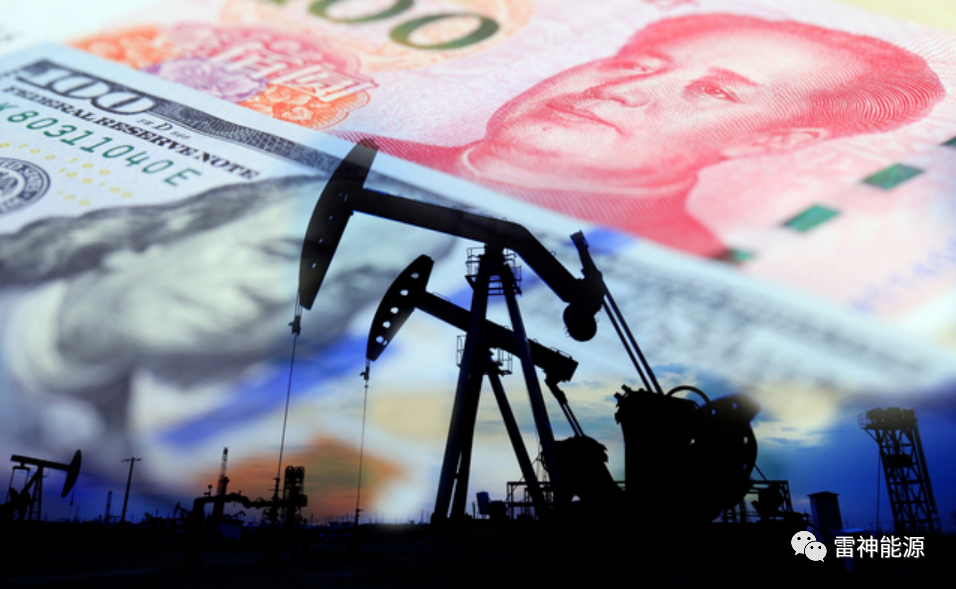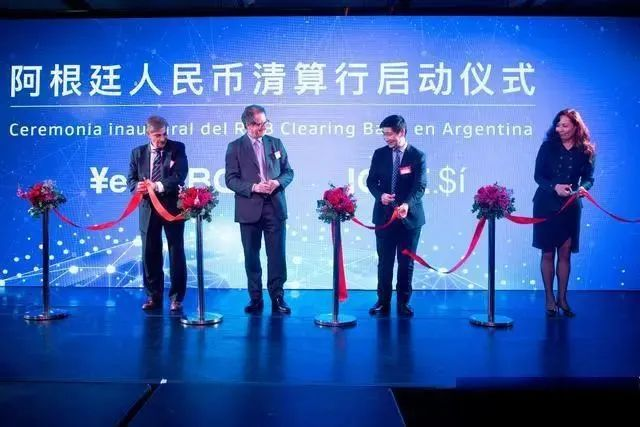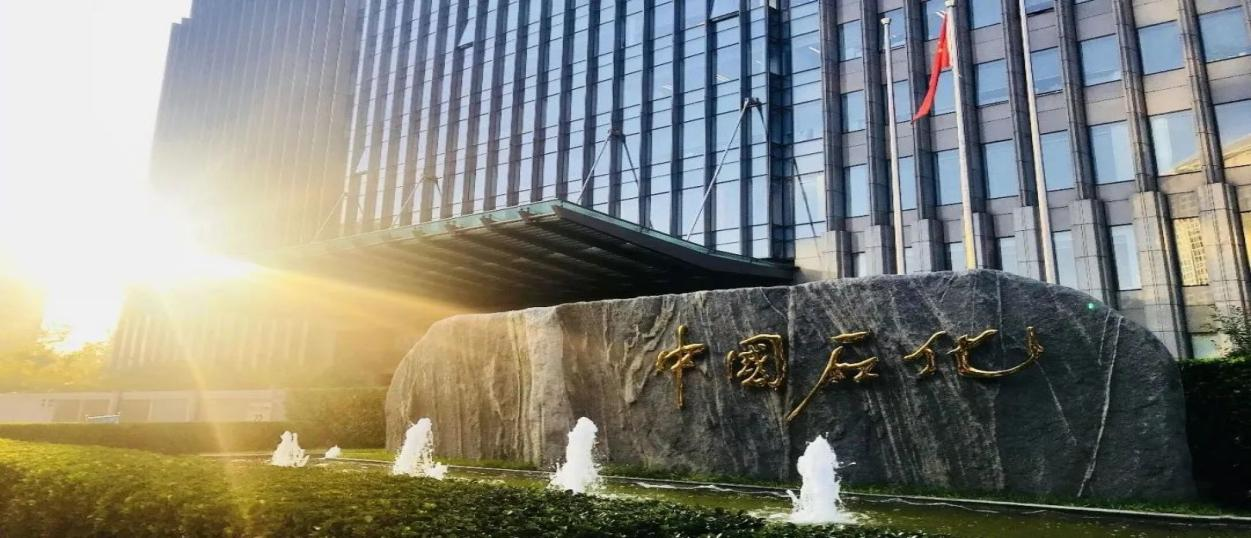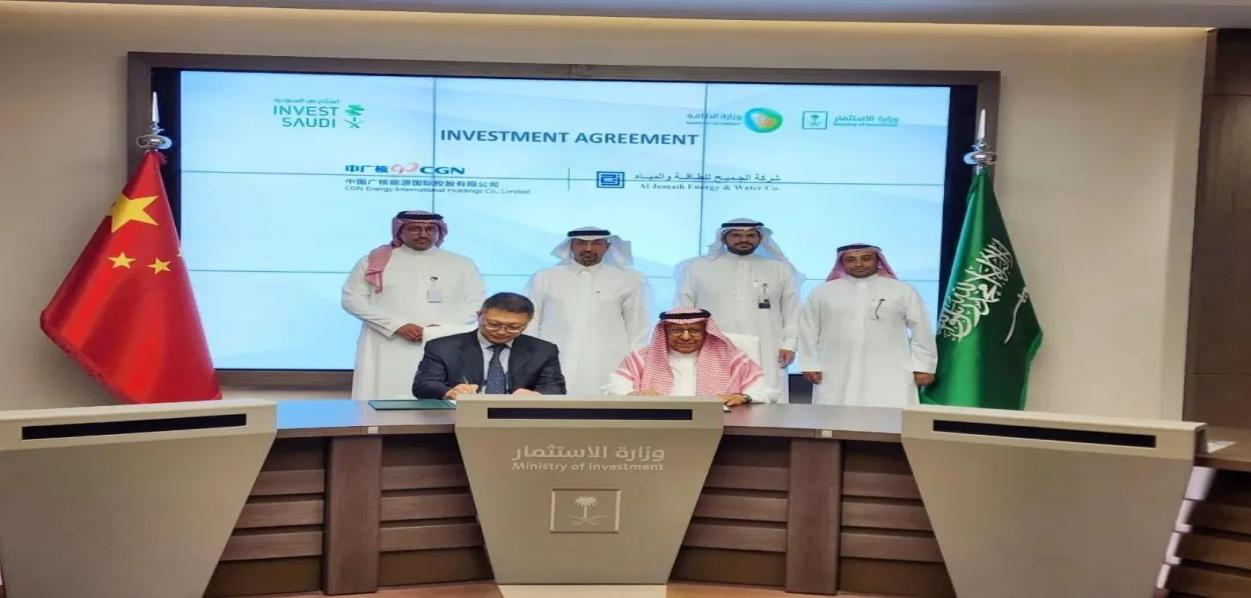
 2022-12-18
2022-12-18

With President Xi Jinping's attendance at the first China-Arab States Summit, the first China-Gulf Arab States Cooperation Council Summit and his state visit to Saudi Arabia, there has been a huge focus on whether China's oil trade with Gulf oil-producing countries will be settled in yuan. The surging news said that recently there are many self-media claiming that "oil yuan settlement has been officially launched" and "it is already possible to buy Saudi oil and gas directly with yuan", which is not correct.
At present, there is no agreement on oil RMB settlement in any official documents or statements, but rather China is willing to make efforts with GCC countries in five key areas of cooperation in the next three to five years, involving the "development of RMB settlement for oil and gas trade" and "development of cooperation on local currency swaps The Chinese government is willing to work with the GCC countries in five key areas of cooperation in the next three to five years, involving the "development of RMB settlement for oil and gas trade" and "development of local currency exchange cooperation". Despite rising market expectations, the final negotiations on the "oil yuan" have not been settled. A number of energy and trade experts have analysed that even if we move into actual operation, the gradual expansion of the use of RMB in oil and gas trade is a gradual process.
01. Prospects for "Oil RMB" trading
Talking about some new trends in the settlement of oil and gas trade between Middle Eastern oil-producing countries and China, Imad, director of the Liberation Research Center, an Egyptian think tank, told the Global Times that settling the relevant trade with the yuan would be beneficial to both sides, as China could enhance the international status of the yuan and Middle Eastern countries could get rid of the shackles and restraints of the United States. Since March this year, calls for settling oil trade in yuan have appeared regularly in mainstream newspapers in Middle Eastern countries such as the Saudi newspaper Al Oqaz. An article on Qatar's Al Jazeera website in November recalled the official launch of the Middle East's first RMB clearing bank in Doha in April 2015, saying it not only strengthened business ties between the Middle East and China, but also helped promote the cross-border use of the RMB in the region. Located in the central business district of Doha, the Doha RMB clearing bank has an average annual clearing volume of RMB 300 billion. The RMB has become a new option for Arab countries to diversify their foreign exchange reserves as China and related countries jointly promote the "One Belt, One Road" project.

▲On Nov. 8, Industrial and Commercial Bank of China (Argentina) Ltd. held a ceremony in the Argentine capital, Buenos Aires, to officially launch the RMB clearing bank service. (Xinhua)
The 'de-dollarisation' of international oil and gas trade is not a new phenomenon. Latin American countries such as Chile and Venezuela tried to move away from the dollar in the 1980s and 1990s, Iraq tried to sell its oil in euros in the early years of the 21st century, and Libya has been active for many years in establishing a "pan-African gold standard".
The Shanghai Oil and Gas Trading Centre platform is in fact a kind of pre-preparation for China to guarantee energy security by operating in RMB. At the same time, the strategic planning of the countries concerned is also to dilute the dependence of oil exports on the US dollar. Xia Le, chief economist for Asia at the Spanish Foreign Bank, told the Global Times that as more oil-producing countries are willing to settle in yuan, it is equivalent to cutting a hole in the dollar's monopoly on the oil trade system, and its significance is huge.
At the China-Gulf Arab States Cooperation Council Summit, China proposed that in the next three to five years, China is willing to make efforts with the GCC countries in five key areas of cooperation. The first is to build a new pattern of three-dimensional cooperation in energy: "China will continue to import large quantities of crude oil from the GCC countries, expand imports of liquefied natural gas, and strengthen cooperation in upstream oil and gas development, engineering services, storage and refining. Make full use of the Shanghai Oil and Gas Trading Centre platform to carry out RMB settlement of oil and gas trade. Strengthen cooperation in clean and low-carbon energy technologies such as hydrogen energy, energy storage, wind power and photovoltaic, smart grids, and cooperation in the local production of new energy equipment. Establish the China Shipping Forum on Peaceful Uses of Nuclear Technology, jointly build the China Shipping Nuclear Security Demonstration Centre and train 300 talents in peaceful uses of nuclear energy and technology for the GCC countries."
Both the 'oil RMB' and its counterpart, the 'gas RMB', have been hotly debated for many years. It is worth noting that the above expressions clarify the direction of China's oil and gas cooperation in the next three to five years, but it will take time before they become official commercial agreements. Currently, the world's two benchmark crude oils - West Texas light crude oil futures (WTI) and Brent crude oil futures - are both denominated in US dollars. For a long time, oil prices have been influenced by factors other than market supply and demand, as well as the US dollar exchange rate. With constant supply and demand, the US dollar exchange rate and oil prices form a seesaw effect. In recent years, the decades-long monopoly of the US dollar as the sole settlement currency for oil has been loosened by the trend towards diversification of international oil pricing and trading currencies. However, the replacement of the "petrodollar" by other currencies will be a slow and gradual process. "For a long time, global commodity trade, especially oil and gas trade, has been settled in US dollars, which is an important symbol of the dollar's hegemony and is also influenced by the US Middle East policy." Prof Patrick Tung, an energy economist and executive director of the Institute of International Business Strategy at the University of International Business and Economics, said in his analysis that oil trade in the GCC countries, especially Saudi Arabia, is settled in US dollars, which used to be more due to geopolitical considerations. "It cannot be ruled out that they will gradually shift to it. But even if it eventually comes to fruition, it will still be a complex and gradual process, and it is unlikely that the US dollar will be completely replaced by yuan settlement in the near future." The Saudi disagreement with the US Biden administration over oil production has become apparent in recent months at a time of international oil price shocks, and is seen as a sign of the waning of the "petrodollar" model.
"Whether it's Saudi Arabia, the UAE or Qatar, they all have to consider where the future market for oil and gas is. There have been very few oil and gas imports since US energy independence, and in terms of autonomy, the change in major buyers has led to the possibility that they will gradually abandon purely dollar-based pricing and settlement." But the process will be long, says Patrick Tung, and even if the negotiations are finally settled, in practice the probability is that the settlement will start with a certain part or transaction in RMB and be limited to oil and gas transactions with China. According to Patrick Dong, the internationalisation of the RMB is accelerating, but there is still a big gap between it and the US dollar in the international monetary system, "China's voice in the international financial and energy pricing system will become more and more vocal, but it will take time." In addition, the stability of the RMB exchange rate is also an important factor for settlement in RMB, which can reduce the risk exposure. A senior oil and gas expert told the surging news, China and Saudi Arabia's economic and trade cooperation space is relatively large, not only oil and gas, the two sides in the field of new energy cooperation is also very broad, "but can not be based on this that the RMB settlement will soon be landed and promoted, even if the RMB settlement is considered, the exchange rate and price determination for a certain period of time still have to refer to the US dollar international currency, the RMB internationalization should be steadily promoted." The expert pointed out that China is a major global oil and gas importer, Saudi Arabia is a major exporter, the fundamental factors of supply and demand determine the basis of oil and gas cooperation between China and Saudi Arabia, "settlement with the yuan will help promote cooperation between the two sides, but it can not be seen as a decisive factor." Another international trade expert said that oil pricing and trading currencies are becoming increasingly diversified and "de-dollarised", but it is too early to judge the end of the "petrodollar" from this.
02. China and Saudi Arabia launch all-round energy cooperation
Although the realisation of the 'oil yuan' will take time, China's energy cooperation with Saudi Arabia, as the country's largest trading partner, has long gone beyond oil. President Xi Jinping's visit to Saudi Arabia is a great opportunity for the two countries to cooperate in the future.
In addition to oil trade, the two sides agreed to jointly explore investment opportunities in the petrochemical sector, develop promising projects in the field of oil-to-petrochemical technology, strengthen cooperation in areas and projects in the development of renewable energy sources and related projects such as electricity, photovoltaics and wind energy, innovative use of hydrocarbons, energy efficiency, localisation of energy products and related industrial chains, strengthen cooperation in the field of peaceful uses of nuclear energy, and in The two sides stressed the importance of deepening cooperation in the area of peaceful uses of nuclear energy, as well as in modern technology development such as artificial intelligence and innovation in the energy industry. The two sides stressed the importance of deepening joint cooperation under the "Belt and Road" initiative, welcoming relevant Saudi institutions to join the "Belt and Road" energy and investment partnership, and strengthening Saudi Arabia's position as a regional hub for Chinese companies to produce and export energy products, which will be of great benefit to regional countries, as well as to European and African consumers of energy products. It will strengthen Saudi Arabia's position as a regional hub for the production and export of energy products by Chinese companies, and will make joint investments in energy projects in regional countries, as well as in European and African energy product consuming countries, in order to promote the development of Saudi Arabia's domestic industry and to achieve self-sufficiency in China's petrochemical industry through relevant Chinese investments in Saudi Arabia. Recently, Chinese and Saudi companies have signed a number of energy cooperation agreements. In addition to the local market, companies from both countries are also expanding their cooperation to third-party markets.

In other Saudi Aramco news, the company and Shandong Energy Group recently signed a Memorandum of Understanding (MoU), which includes a potential crude oil supply agreement and an off-take agreement for chemical products. The MOU also covers cooperation in technologies related to hydrogen energy, renewable energy and carbon capture and storage.
Saudi Aramco Chairman Yasser Rumeyan said in a recent interview with Xinhua that Saudi Aramco's cooperation with China has long gone beyond crude oil exports. The company has established joint ventures with the Chinese side, including Saudi Yanbu Aramco Sinopec Refining Co Ltd and Sinopec Senmei (Fujian) Petroleum Co Ltd, and is negotiating more cooperation projects. Saudi Aramco will also cooperate extensively with China in a wide range of areas such as carbon capture, hydrogen production processes and non-metallic materials.

▲China Guangnuclear Energy International and AlJomaih Group Sign Framework Cooperation Agreement On December 7, in the presence of Saudi Minister of Investment Khalid Al-Falih, China Guangnuclear Energy International Holdings Limited and AlJomaih Group, a well-known Saudi company, signed a framework cooperation agreement in Riyadh. According to the agreement, the two sides will jointly develop a number of solar, wind, gas and thermal power projects in the Arab Persian Gulf region, Bangladesh, Azerbaijan and other regions in Asia, with a total contracted installed capacity of over 10 million kilowatts. In addition, during the first China-Arab Countries Summit, Chinese PV company JinkoSolar signed a Memorandum of Understanding with Saudi power developer ACWA Power to supply 4GW of N-type Tiger Neo modules to the latter for its project development and construction.